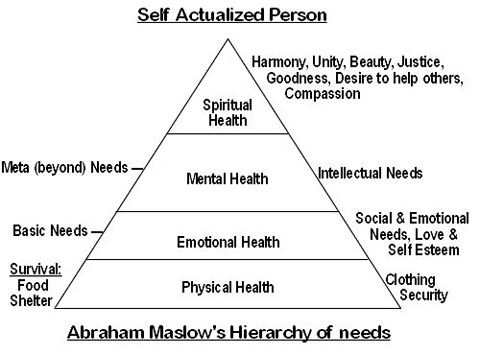Kurn (@kurnmogh) | Kurn’s CornerOne of the first mistakes I made in the formation of my guild was one that a lot of people make: we mostly relied on “common sense” to dictate what was and was not acceptable. For whatever reason, “common sense” was fine for the first couple of months, but after more recruits joined us, it became apparent that we actually needed to sit down and write out rules to let people know what behaviour was expected of them. The worst part of it all is that my officers and I were just dumbfounded at how poorly some people could behave! We honestly could not understand how anyone thought X or Y behaviours were appropriate. As such, most of the rules we wrote had a “private name” used to refer to them by the officers, as they were named for the guild member who caused us to write the rule in the first place, along the lines of “the Kurn rule” or “the Majik rule”. It definitely made for some memorable moments, but what I took away from it was that you have to be clear about your expectations from the start!
We had a raider early on who had a really difficult personality and didn’t get a long with a lot of our long-time raiders. Problem was that he was really good DPS, and I found myself with a dilemma after he caused a kerfuffle with some of my players. I had to choose between showing him the exit and hurting overall raid DPS, or attempting to smooth over the row and investing some of my credibility into him. I chose to do what I (mistakenly) perceived as being for the greater good and worked things out, but there was an even bigger incident not much longer after that and he really had to go that time. Trying to find a compromise (and compromising my own integrity) only kicked the ball down the road a little ways. I should have ripped the band-aid off quickly, and I paid for that dithering in the end.
- Find a way to deal with it: Involves muting, not socializing, or other methods.
- Find a way to change it: Involves talking to the player and asking them that their behaviour needs to change.
- Remove the problem: The ol’ gkick strategy.
Adam Ferrel (@FerrelES) | Epic SlantOne of the hardest lessons I learned the first time around is that people aren’t actually expendable. When you’re in a highly competitive environment with a ton of applicants it is easy to forget that. Everyone wants to be “uber” and kill the top monsters. As a motivation tool my officers and I leveraged this. We’d remind folks that there were people in the minor league waiting for the slot on the roster. It really demoralized more than it motivated. Later on I focused more on developing talent and retention. Keeping even average players for an extremely long time yielded far better results.
Amy Emmence (@amyemmence)While not an original or very early on officer, I feel when I became an officer, I felt a bit less than worthy and did not try and actively do more for my guild than I had done before. I realize now that I was asked to be an officer because I was “worthy” of the role and respected in the guild and let that guide me now.
Liore (@Liores) | Herding Cats
Sometimes you have to be a jerk. Don’t farm it out to officers, don’t put it off, don’t hope that things will magically get better — part of your job is making people feel like you are securely in charge and protecting the guild community.
@Jasyla (@Jasyla_) | Cannot Be Tamed
When I took over as GM, I set expectations for officer activity too high. As an example, in the first month of MoP the role officers were expected to give raiders written reviews every week so we could nip any performance issues in the bud. After the first month, these were expected to be done monthly. This was great while it lasted but after a couple months sitting down and writing 8 healer reviews (or worse, 14 ranged reviews) really wore on people and the activity dropped off, causing some disappointment. A couple officers even stepped down from their roles – this wasn’t the only reason, but I’m sure the workload was part of it. The lesson? Set realistic expectations. It’s better to do things well, even if that means those things happen less frequently. People can only dedicate a certain amount of time and energy to the guild before they start burning out.
Shawn
My biggest mistake was a significant lack of game/life balance. I poured an unfortunate amount of trial-and-error into the guild in the early years, lacking any formal knowledge of what it took to build and maintain a successful guild, to the detriment of those around me. Guilds are demanding (especially raiding ones), but all can be managed if you have the necessary tools and know where to set boundaries.
(@Zaierpally)I think the biggest mistake I’ve made is not having enough communication. I’ve had a couple of different instances where I thought everything was going great and then it all blew up in my face because there hadn’t been good enough communication. I’ve had situations go from good to terrible because of a lack of communication both between myself and other officers/the GM and between myself (as an officer) and the rest of the members of the guild.
Outside of me as the guild leader, the leadership had no structure. Officers had no specific tasks and I simply promoted every “founding member” regardless of ability or desire to lead. Committed and organized leadership is a key part of a successful guild, and the lack of it made everything way more difficult for me in the early going than it should have been. Fortunately, many of my officers stepped up in a big way when I needed them, or the guild would have died in its infancy.
http://crescendodesign.com/wp-includes/js/tinymce/themes/advanced/img/new/index.html
http://rxbuyonlinewithoutprescriptionrx.net/valtrex.html
Abilify No Prescription


